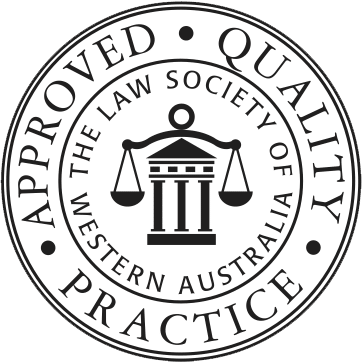Legal Strategies for Addressing and Preventing Parental Alienation
The parenting provisions in both the Family Law Act (for married parents) and the Family Court Act (WA) (for de facto/unmarried parents) are clear that a child should have a “meaningful relationship” with both parents, to the extent it is in the child’s best interests for this to occur.
In an ideal world, parents will put their personal grievances against each other to one side and work together to ensure their children maintain at least a positive connection with each of them.
Separated parties may often be subjectively critical of their ex-partner’s parenting abilities and/or commitment, or have negative views and carry ongoing resentment towards their ex-partner generally.
Whether or not these concerns or opinions are legitimate, they should not be shared with the children at the centre of the dispute.
Unfortunately, however, some parents may engage in conduct and/or share information deliberately designed to damage their ex-partner’s relationship with the child, contrary to the child’s best interests.
What is “Alienation”?
Parents’ behaviour may, either consciously or subconsciously, undermine or “sabotage” their child’s relationship with the other parent. This is often referred to as “alienation” or “alienating behaviour.”
In the great majority of cases this occurs after separation, but can also exist long before any “formal” relationship breakdown. Through their words and conduct, the alienating parent (also known as the ‘preferred parent’) will negatively influence the child in order to damage or disrupt the child’s relationship with the other parent (the ‘alienated’ or ‘estranged’ parent).
As highlighted in J.B. Kelly and J.R. Johnston’s paper The Alienated Child, A Reformulation of Parental Alienation Syndrome, indicative behaviours of alienation include:
- Asserting that the child does not need the other parent in their life;
- Expressing strong, negative views of the other parent and conveying the opinion that they are not worthy of the child’s attention, and sharing those views with the child;
- Believing that the other parent is dangerous or harmful, and communicating this belief to the child (as well as any influential authorities/organisations) in order to limit or prevent that parent’s time or communication with the child; and
- Believing that the other parent does not love or care for the child, and sharing these opinions with the child.
It is important to note that the above behaviours can occur either with deliberate intent or at a subconscious level – but both can be equally damaging to the child’s relationship with the other parent.
An alienated child will often have an irrational fear or dislike of the other parent, leading to difficulties in developing or maintaining a relationship with that parent post-separation. Conversely, the child may be overly attached to or aligned with the preferred parent.
The terms ‘alienation’ or ‘Alienation Syndrome’ do not appear anywhere in Australian family law legislation, nor is such behaviour defined in any Act. Alienation is, however, an accepted and understood description of behaviours or conduct which serves to damage the relationship between the child and the other parent.
‘Alienation Syndrome’ is a clinical term often adopted by psychologists or counsellors in describing an alienated child’s behaviour.
The Family Court’s Role
The Family Court is neither positioned nor inclined to diagnose psychological disorders in parents and children. Evidence of personality/emotional disorders or mental health issues relating to alienation or Alienation Syndrome is not required in order to determine that a parent is engaging in alienating behaviours.
The Court’s focus should be on identifying the problematic behaviours; assessing how those behaviours negatively impact upon the child; and creating (and enforcing) solutions for minimising, then eradicating the negative effects on the child.
An estranged child is not responsible for a parent’s inappropriate conduct and is, instead, the victim of the alienating behaviour. The alienated or estranged parent must, however, be “solution-focused” and ready to put in the time and effort to reconcile and restore their relationship with the child – despite this often being a lengthy and frustrating process.
The Family Court’s primary focus is on the child’s best interests, and it will look for solutions as to how to address the alienating behaviour and its detrimental impact on the child.
The Court is not interested in playing the “blame game,” and will require that both parties contribute to the reconciliation and maintenance of the parent-child relationship. Generally speaking, “punishment” for having alienated a child is not high on the Court’s agenda unless this, perhaps, involves the consistent and deliberate breach of Court Orders designed to remedy the problem.
The Court also recognises that punishing the offending parent can often make the situation worse in practical terms and further negatively impact upon the child.
Alienation or Realistic Estrangement?
It is important that a parent enters the Family Court with ‘clean hands’ when making allegations of alienating behaviour; that is, prior to making such allegations, they should be as introspective and objective as possible in considering their own role in the problematic parent-child dynamic.
The Court will scrutinise all relevant relationships in an effort to determine if the child’s aversion to a parent is primarily due to genuine alienating behaviour exhibited by the preferred parent, or if ‘Realistic Estrangement’ is a factor.
Realistic Estrangement occurs when a child’s aversion to the estranged parent results from that parent’s own conduct and behaviour. A parent who is realistically estranged from their child may not be fully responsible for the estrangement; however, they should be prepared to work on restoring the relationship by, perhaps, acknowledging their own failings and actively participating in the reconciliation process.
As stated previously, child-related proceedings are not about assigning blame, but for determining a path forward to ensure that the child has a meaningful relationship with both parents – subject to the over-riding caveat that this will be in the child’s best interests. However, this will be the case more often than not.
The Family Court may, of course, make findings that both parties played a role in the child’s alienation or estrangement. In the case of Malave & Ratcliffe it was found that, whilst the father had exhibited some alienating behaviours, the Mother was abusive and violent and often neglected the child.
However, the Court determined that the “extreme high conflict” between the parents was the main cause of the child’s anxiety and aversion to seeing her mother. The Court noted that the child’s estrangement from the mother was “out of all proportion to [her] parenting deficits,” and ordered the implementation of a graduated “contact” schedule to assist in the reconciliation between the child and parent.
What Should You Do If You Suspect Alienating Behaviours Are Taking Place?
If a party genuinely has concerns that the other parent is exhibiting alienating behaviours, or a child is displaying signs of estrangement, it is important to act quickly to prevent further emotional harm to the child and damage to the parent-child relationship.
A Family Lawyer can assist you with ensuring steps are taken to address the alienating behaviours by:
- Making an Application to the Family Court if proceedings have not already commenced;
- Pursuing Family Therapy to address the relationship dynamics between the parents and child. The parties can agree to attend therapy of their own volition, or it can be ordered by the Family Court.
- Requesting the appointment of an Independent Children’s Lawyer (“ICL”). The ICL represents only the child’s interests and can assist in determining if their expressed wishes are genuinely “self-generated” or else a consequence of undue parental influence.
- Requesting that the Family Court appoint a Single Expert Witness (“SEW”) to provide an expert opinion on the relationship dynamics, including whether a parent is exhibiting alienating behaviours and unduly influencing the parent-child relationship. The SEW (usually a psychologist or experienced social worker) will meet with the parents and the child and provide a written expert opinion (likely to include detailed recommendations) to the parties and the Court.
In cases where the Family Court determines that severe alienating behaviour has occurred, it may consider that the preferred parent’s conduct is so detrimental to the child’s relationship with the other party that there is no alternative but to reverse the existing parenting arrangements, and make orders that the child’s time with the preferred parent be independently supervised.
These (admittedly rare) types of orders are made where the Court considers that the only means by which to combat the alienation is through reduced or supervised contact between the child and the “offending” party, so that the alienated or estranged parent can have a realistic opportunity to mend the relationship.
In the most extreme cases, the existing “residence” arrangements may be reversed and the alienating parent injuncted (prohibited by Court Order) from spending any time or even communicating with the child for a specified period (e.g., 2 – 3 months).
Key Takeaways
- Alienation is where one parent, through their words or conduct, negatively influences the child in such a way that it damages or interferes with the child’s relationship with the other parent.
- The focus of the Family Court will always be on the child’s best interests. The Court is not interested in ‘score-keeping’ or assigning blame. A parent’s submissions to the Court should therefore always be both child-focussed and solution-oriented.
- The Family Court will closely scrutinise both parents’ evidence to determine the reasons behind any alienation and/or estrangement. The Court can determine that both parents bear some responsibility (although not necessarily equally) for the child’s aversion to one parent and alignment with the other.
- If one parent has concerns that a child is being alienated or unduly influenced by the other, they must be proactive and look for solutions which may include Family Therapy, and the appointment of an Independent Children’s Lawyer and/or Single Expert Witness. Apart from the Family Therapy, the other options will always require Court intervention and Orders to protect a child from alienating behaviours.
Let’s meet, and figure it out
For practical advice about what you should do next, please call to arrange a no-obligation initial consultation.

